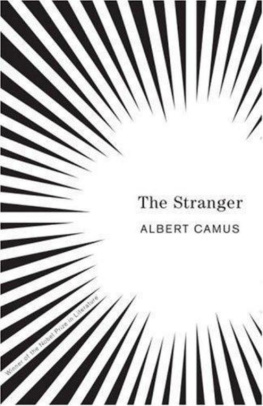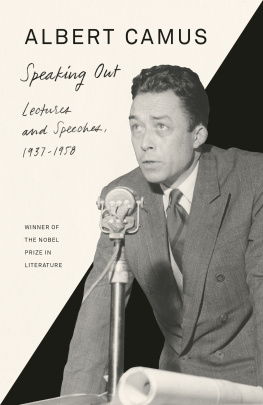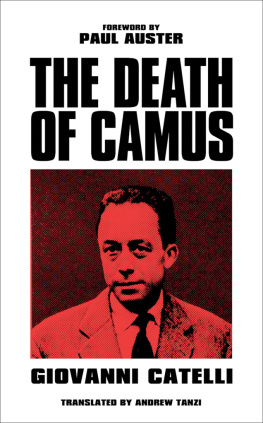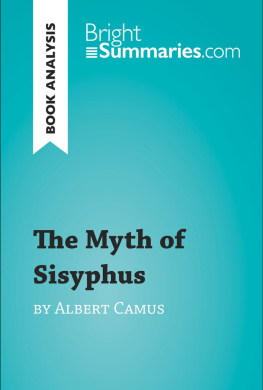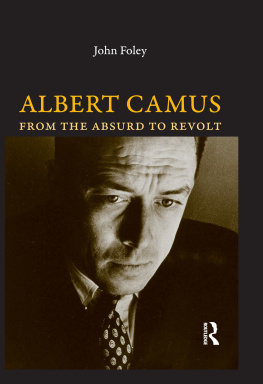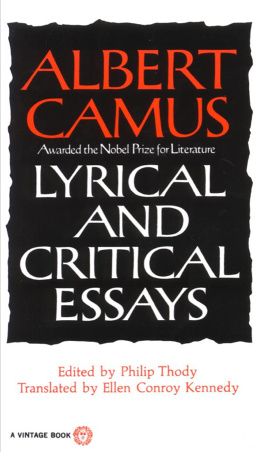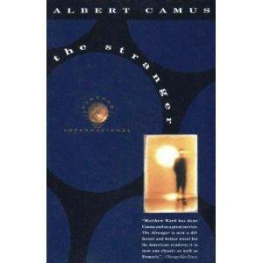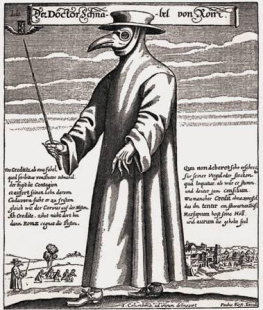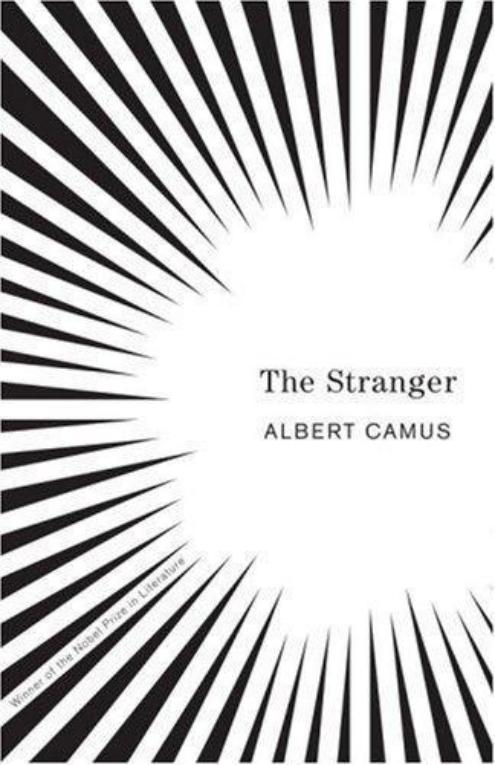The Stranger
ALBERT CAMUS
Translated from the French by Stuart Gilbert
TABLE OF CONTENTS
Part One
I
MOTHER died today. Or, maybe, yesterday; I cant be sure. The telegram from the Home says: YOUR MOTHER PASSED AWAY. FUNERAL TOMORROW. DEEP SYMPATHY. Which leaves the matter doubtful; it could have been yesterday.
The Home for Aged Persons is at Marengo, some fifty miles from Algiers. With the two oclock bus I should get there well before nightfall. Then I can spend the night there, keeping the usual vigil beside the body, and be back here by tomorrow evening. I have fixed up with my employer for two days leave; obviously, under the circumstances, he couldnt refuse. Still, I had an idea he looked annoyed, and I said, without thinking: Sorry, sir, but its not my fault, you know.
Afterwards it struck me I neednt have said that. I had no reason to excuse myself; it was up to him to express his sympathy and so forth. Probably he will do so the day after tomorrow, when he sees me in black. For the present, its almost as if Mother werent really dead. The funeral will bring it home to me, put an official seal on it, so to speak....
I took the two-oclock bus. It was a blazing hot afternoon. Id lunched, as usual, at Clestes restaurant. Everyone was most kind, and Cleste said to me, Theres no one like a mother. When I left they came with me to the door. It was something of a rush, getting away, as at the last moment I had to call in at Emmanuels place to borrow his black tie and mourning band. He lost his uncle a few months ago.
I had to run to catch the bus. I suppose it was my hurrying like that, what with the glare off the road and from the sky, the reek of gasoline, and the jolts, that made me feel so drowsy. Anyhow, I slept most of the way. When I woke I was leaning against a soldier; he grinned and asked me if Id come from a long way off, and I just nodded, to cut things short. I wasnt in a mood for talking.
The Home is a little over a mile from the village. I went there on foot. I asked to be allowed to see Mother at once, but the doorkeeper told me I must see the warden first. He wasnt free, and I had to wait a bit. The doorkeeper chatted with me while I waited; then he led me to the office. The warden was a very small man, with gray hair, and a Legion of Honor rosette in his buttonhole. He gave me a long look with his watery blue eyes. Then we shook hands, and he held mine so long that I began to feel embarrassed. After that he consulted a register on his table, and said:
Madame Meursault entered the Home three years ago. She had no private means and depended entirely on you.
I had a feeling he was blaming me for something, and started to explain. But he cut me short.
Theres no need to excuse yourself, my boy. Ive looked up the record and obviously you werent in a position to see that she was properly cared for. She needed someone to be with her all the time, and young men in jobs like yours dont get too much pay. In any case, she was much happier in the Home.
I said, Yes, sir; Im sure of that.
Then he added: She had good friends here, you know, old folks like herself, and one gets on better with people of ones own generation. Youre much too young; you couldnt have been much of a companion to her.
That was so. When we lived together, Mother was always watching me, but we hardly ever talked. During her first few weeks at the Home she used to cry a good deal. But that was only because she hadnt settled down. After a month or two shed have cried if shed been told to leave the Home. Because this, too, would have been a wrench. That was why, during the last year, I seldom went to see her. Also, it would have meant losing my Sundaynot to mention the trouble of going to the bus, getting my ticket, and spending two hours on the journey each way.
The warden went on talking, but I didnt pay much attention. Finally he said:
Now, I suppose youd like to see your mother?
I rose without replying, and he led the way to the door. As we were going down the stairs he explained:
Ive had the body moved to our little mortuaryso as not to upset the other old people, you understand. Every time theres a death here, theyre in a nervous state for two or three days. Which means, of course, extra work and worry for our staff.
We crossed a courtyard where there were a number of old men, talking amongst themselves in little groups. They fell silent as we came up with them. Then, behind our backs, the chattering began again. Their voices reminded me of parakeets in a cage, only the sound wasnt quite so shrill. The warden stopped outside the entrance of a small, low building.
So here I leave you, Monsieur Meursault. If you want me for anything, youll find me in my office. We propose to have the funeral tomorrow morning. That will enable you to spend the night beside your mothers coffin, as no doubt you would wish to do. Just one more thing; I gathered from your mothers friends that she wished to be buried with the rites of the Church. Ive made arrangements for this; but I thought I should let you know.
I thanked him. So far as I knew, my mother, though not a professed atheist, had never given a thought to religion in her life.
I entered the mortuary. It was a bright, spotlessly clean room, with whitewashed walls and a big skylight. The furniture consisted of some chairs and trestles. Two of the latter stood open in the center of the room and the coffin rested on them. The lid was in place, but the screws had been given only a few turns and their nickeled heads stuck out above the wood, which was stained dark walnut. An Arab womana nurse, I supposedwas sitting beside the bier; she was wearing a blue smock and had a rather gaudy scarf wound round her hair.
Just then the keeper came up behind me. Hed evidently been running, as he was a little out of breath.
We put the lid on, but I was told to unscrew it when you came, so that you could see her.
While he was going up to the coffin I told him not to trouble.
Eh? Whats that? he exclaimed. You dont want me to ...?
No, I said.
He put back the screwdriver in his pocket and stared at me. I realized then that I shouldnt have said, No, and it made me rather embarrassed. After eying me for some moments he asked:
Why not? But he didnt sound reproachful; he simply wanted to know.
Well, really I couldnt say, I answered.
He began twiddling his white mustache; then, without looking at me, said gently:
I understand.
He was a pleasant-looking man, with blue eyes and ruddy cheeks. He drew up a chair for me near the coffin, and seated himself just behind. The nurse got up and moved toward the door. As she was going by, the keeper whispered in my ear:
Its a tumor she has, poor thing.
I looked at her more carefully and I noticed that she had a bandage round her head, just below her eyes. It lay quite flat across the bridge of her nose, and one saw hardly anything of her face except that strip of whiteness.
As soon as she had gone, the keeper rose.
Now Ill leave you to yourself.
I dont know whether I made some gesture, but instead of going he halted behind my chair. The sensation of someone posted at my back made me uncomfortable. The sun was getting low and the whole room was flooded with a pleasant, mellow light. Two hornets were buzzing overhead, against the skylight. I was so sleepy I could hardly keep my eyes open. Without looking round, I asked the keeper how long hed been at the Home. Five years. The answer came so pat that one could have thought hed been expecting my question.
That started him off, and he became quite chatty. If anyone had told him ten years ago that hed end his days as doorkeeper at a home at Marengo, hed never have believed it. He was sixty-four, he said, and hailed from Paris.

